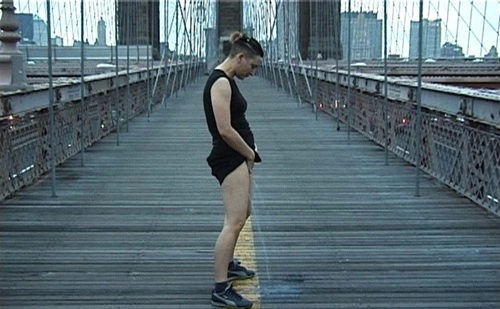Yes, it is illegal to urinate in public in most parts of the United States. Public urination is typically classified as a misdemeanor and can result in fines, community service, or other penalties. In some cases, repeat offenses or specific circumstances can lead to more severe consequences, such as being registered as a sex offender if the act is deemed indecent exposure.
Public Urination and the Law
1. Local Ordinances
Public urination laws are often enforced at the local level through municipal codes or city ordinances. While the exact wording and penalties vary, most urban areas have specific regulations prohibiting urinating in public spaces, including streets, parks, and alleyways.
2. State Laws
Some states have broader statutes that can be applied to public urination, such as laws against disorderly conduct, public indecency, or criminal nuisance.
For example:
- California: Public urination may be charged as disorderly conduct or a violation of municipal codes.
- New York: Public urination is considered a public health code violation and results in a civil penalty, not a criminal offense.
- Texas: Public urination is often charged as disorderly conduct.
3. Indecent Exposure
In certain cases, public urination can lead to indecent exposure charges, particularly if the act is witnessed by minors or deemed sexually explicit. This can carry much harsher penalties, including jail time and mandatory sex offender registration.
Penalties for Public Urination
1. Fines: Most municipalities impose fines for public urination, ranging from $50 to $1,000, depending on the location and circumstances.
2. Community Service: First-time offenders may be required to complete community service instead of paying a fine.
3. Criminal Record: In some jurisdictions, public urination is considered a misdemeanor and may result in a criminal record, which could affect employment or housing opportunities.
4. Repeat Offenses: Repeat offenses may lead to increased fines, longer community service hours, or even jail time.
Exceptions and Gray Areas
1. Emergency Situations: Courts may consider extenuating circumstances, such as medical emergencies, when determining penalties for public urination.
2. Rural or Remote Areas: In sparsely populated areas where public restrooms are unavailable, enforcement of public urination laws may be less strict, although it is still technically illegal.
3. Citations vs. Arrests:
In many cases, law enforcement officers issue citations rather than making arrests for public urination, especially if the offender is cooperative and has no prior record.
Reasons Behind Public Urination Laws
1. Public Health and Sanitation: Public urination poses health risks, such as the spread of bacteria and unpleasant odors in public spaces.
2. Preservation of Public Decency: Laws against public urination help maintain social norms and prevent disruptions in public areas.
3. Urban Planning Challenges: Inadequate access to public restrooms in many cities has been a recurring issue, making enforcement of these laws more contentious.
Related FAQs
Q1. What is the typical penalty for public urination?
Ans: Penalties vary but generally include fines ranging from $50 to $1,000. In some cases, offenders may be required to complete community service.
Q2. Can public urination lead to a criminal record?
Ans: Yes, in some jurisdictions, public urination is classified as a misdemeanor, which can result in a criminal record.
Q3. Is public urination always considered indecent exposure?
Ans: No, public urination is typically treated as a separate offense. However, if the act is deemed sexually explicit or occurs in the presence of minors, it may result in indecent exposure charges.
Q4. Are there defenses for public urination?
Ans: Yes, defenses may include medical emergencies, lack of restroom access, or proving that the act was not done in public view.
Q5. What are alternatives to public urination when restrooms are unavailable?
Ans: Look for portable restroom facilities, ask nearby businesses for restroom access, or plan routes with known restroom locations when traveling in urban areas.
In conclusion, Public urination is illegal in most parts of the United States, with laws enforced at both the local and state levels. While typically resulting in fines or community service, severe penalties can arise if the act is deemed indecent or repeated offenses occur. Public health and decency concerns are the primary reasons behind these laws, highlighting the need for better public restroom accessibility in many areas.

